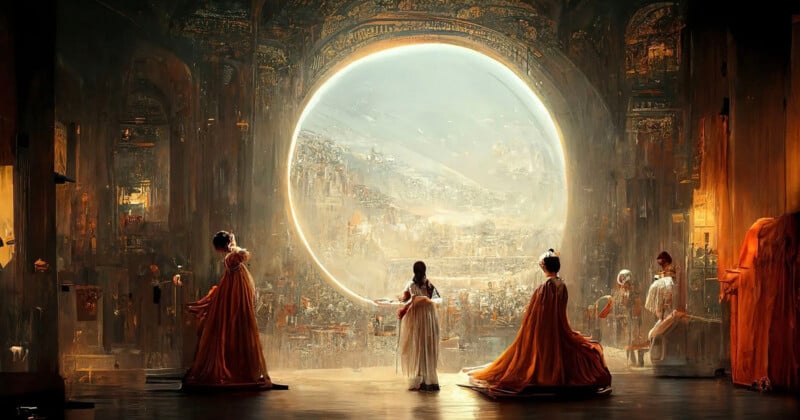Artist Who Duped Art Contest With AI Image Has Copyright Application Rejected

An artist who rose to notoriety for winning first place in a fine art competition with an AI-generated image has had his application for protection rejected by the U.S. Copyright Office.
Jason Allen made headlines around the world last year when the Colorado State Fair awarded his AI-generated artwork, Theatre D’opera Spatial, first place in the digital art/digitally manipulated photography category of the Fine Art competition. Allen was unrepentant for his actions, saying “I’m not stopping now.”
True to his word, he now wants Theatre D’opera Spatial to be afforded copyright protection, but, true to its word, the Copyright Office has rejected the application because the picture is not a product of human authorship.
According to the copyright ruling, Allen argues that he inputted “at least 624″ prompts before the AI image generator Midjourney produced the images that he wanted. Allen tells the Office that through his text prompting; he chose the scene, tone, and focus of the images.
Further to his claim, Allen says that he then used Adobe Photoshop to “remove flaws and create new visual content” before using another photo editing software program, Gigapixel AI, to increase the resolution and size of the image.
“I had a literal vision of women in Victorian dresses wearing space helmets. I was in a hypnagogic state halfway between awake and dreaming, and I was like, ‘Oh, wow. This is something I’ve never thought of or seen. Oh, I could put this into Midjourney,” Allen tells CPR News.
Defiant
When Allen won first place in Colorado, he annoyed genuine creators who called it “the death of artistry.” But, he told the New York Times “I’m not going to apologize for it. I won, and I didn’t break any rules.”
Allen said yesterday that he expected the Office to reject his copyright application, but he is “certain we will win in the end.”
“If this stands, it is going to create more problems than it solves,” Allen tells Reuters. “This is going to create new and creative problems for the Copyright Office in ways we can’t even speculate yet.”
Clear Guidance
The U.S. Copyright Office has made it crystal clear that AI-generated pictures are not suitable for copyright protection.
A federal judge agreed with the Office and contrasted AI images to photography, which also uses a processor to capture images, but it is the human that decides on the elements of the picture, unlike AI imagery where the computer decides on the picture elements.
However, generative AI and copyright remains opaque and the Copyright Office has just opened a public consultation seeking opinions on how copyright should work with AI-generated material.